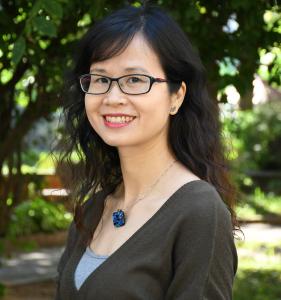National Policies and International Relations under Covid19 in Southeast Asia and Beyond
HA NOI - On November 16, KAS Vietnam and the University of Social Sciences and Humanities co-organised a seminar introducing the book entitled "National Policy and International Relations under the Covid 19 in Southeast Asia and Beyond". Apart from reviewing main content of the book which is to be published by German Publishing House Nomos Verlag, the seminar discussed the impacts of the pandemic on regional cooperation, ASEAN and multilateral institutions. The hybrid event attracted about 100 participants online and onsite.
As the main editor of the book, Dr. Detlef Briesen, from Justus-Liebig Universität Gießen, said that the purpose of the book is to point out the pros and cons of the anti-epidemic methods applied by regional countries so that these countries can learn from each other's experiences. In fact, each country has a different pandemic approach, depending on their available resources and social practices.
Dr. Briesen also observed that ASEAN member countries were consistent in closing their borders during the pick of the pandemic. However, this also showed the level of connectivity of ASEAN countries was not high since border closure had little effects on other countries. If this happened in the EU it would have caused rigorous reaction, he added.
Meanwhile, Dr. Vo Xuan Vinh, deputy director of the Institute for Southeast Asian Studies, Vietnamese Academy of Social Sciences, evaluated ASEAN as a support channel and a centre for resource coordination. “ASEAN has made efforts to tackle the pandemic collectively through dialogues and multilateral pandemic response”, he said.
To enhance opportunities and limit challenges for ASEAN after the pandemic, the speakers agreed that ASEAN should continue to strengthen cooperation and be specific in responding to the pandemic. The speakers shared the view that capacity of a country in dealing with crises like the Covid19 depends very much on its international integration level.
Sharing about Covid19 situation in Indonesia, Assoc. Prof. Dr. Patrick Ziegenhain from Indonesian President University said that the country is doing quite well in the management of the covid-19 pandemic with relatively low infection rates and deaths and considerably high coverage of vaccination. Commenting on the Covid-fighting policy of Indonesia he revealed that until early 2021 many international experts criticized Indonesia for not introducing hard lockdowns like in Australia. These opponents, as he argued, overlooked Indonesian limited resources: a relatively weak healthcare system and a fragile welfare state. “This means if you send people to a lockdown, they cannot earn money to feed themselves and their families,” he said. “The economic situation in Indonesia is not good but better than in other Southeast Asian countries such as the Philippines or Malaysia, and at the same time, the health of 270 million Indonesians was protected quite effectively.”
Nonetheless, Dr. Ziegenhain expressed concern about the Indonesian government giving more powers to the police and military to keep order. This is also a problem in some other Asian countries. From the government perspective, they want political stability during the pandemic but this action could deteriorate free speech and other democratic rights.
From India, a country “beyond Southeast Asia”, Assoc. Prof. Dr. N. K. Kumaresan Raja, Pondicherry University, Puducherry talked about the paradox in India which produce a large volumn of vaccine but the vaccination rate remains relatively low because a large part of population had belief in traditional medical treatment and other measures to overcome the Covid rather than vaccines. Moreover, the warping between central and local governments is named as an obstacle in the fight against the Covid19. As a populous country with states-government, various ethnicities and 60 different languages India could not have a consistent anti-Covid policy, Dr.Raja explained. As long as the central and local governments do not have one voice then there cannot be an effective policy to contain the pandemic, he said.
International Relations under the Covid19
Regarding the changes in international relations under the Covid19, Dr. Ziegenhain said that during the early time of pandemic when ASEAN countries were not accessible to Western vaccines China was very active with its vaccine diplomacy. That was an important factor influencing international relations in the region. While admitting the long-lasting negative impact of the pandemic on economies Dr. Ziegenhain believed the worst time was behind and governments should focus on measures to revitalize the economies.
Being asked whether the pandemic bring any opportunities for international cooperation, Mr. David Payne, International Programme Management Specialist, United Nations Development Program (UNDP) in Vietnam, said that it creates pressure for digitalization in general and digitalized enterprises in particular. In addition, in the pandemic proved the importance of multilateral cooperation and Covax was a case in point.
As part of the UN system, UNDP has partnered with other international organizations such as WHO, ASEAN and Unicef to support health emergencies and equipment procurement; provide state-of-the-be-stated systems to enhance the responsiveness of the health system; building an electronic trace tracing system, deploying vaccines in the right place, according to Payne.
Sharing Payne’s view about the role of multilateralism in tackling global crises, Dr. Raja insisted that multilateral institutions should not be monopolised by any country for the benefit of a single country. - KAS Vietnam
このシリーズについて
コンラート・アデナウアー財団と財団所有の教育機関、教育センターと国外事務所は、さまざまなテーマについて毎年何千ものイベントを開催しています。その中から選ばれた会議、イベント、シンポジウムについては、直近の特別レポートをwww.kas.deで紹介しています。内容の要約のほか、写真、講演原稿、録画や録音などの付属資料があります。



